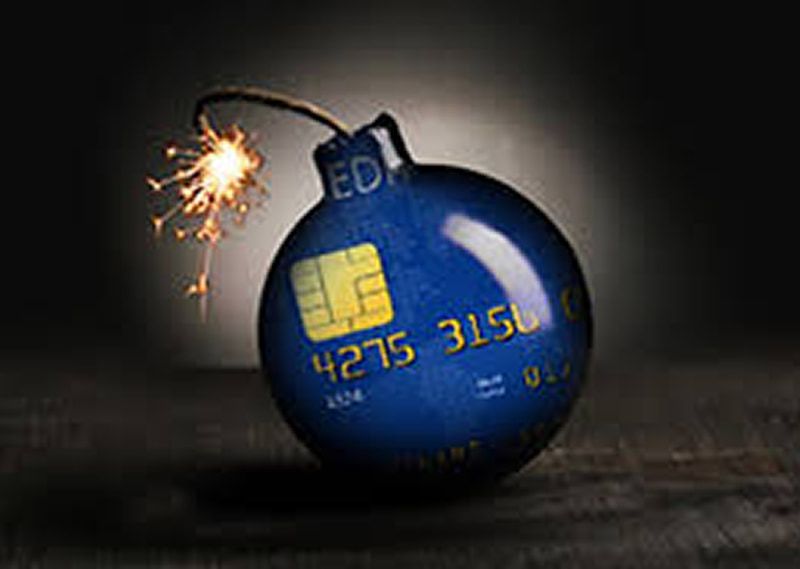Seven Credit Card Blunders That You Should Never Commit
The judicious deployment of your credit cards can unlock your fiscal life, offering you convenience, rewards, as well as a way of obtaining a record of credit. Nevertheless, stumbling into common pitfalls can easily change valued allies into financial burdens. More often than not, consequences of your mistake go beyond immediate expenses, undermining your credit score as well as your fiscal opportunities for a very long time into the future. In this article, we look at seven of the worst credit card blunders that all should actively avoid.

And finally, paying or missing after due date is the largest possible blunder you can make with a charge card. Your payment history makes up about 35% of your FICO score of creditworthiness, so missing a payment can hurt your credit badly. And that is not all: Not only did you pay very high, expenses-costing-you-later extra costs for paying after due date, your rate increases to a punishment rate with your balance-building sooner. And worst of all, your payment can end up onto your reports for seven years or more, keeping you from taking loans, better charge cards, or even good rent offers. Automatic payment enrollments or reminders get you not a day after due date paying, keeping your credit from well-deserved damage.
Another common but dangerous strategy includes paying only a minimum due a month. Although this can be an appealing strategy of cash flow control, this generates debt outstanding for too long a period as well as exposes you to high interest fees. Minimum payment schedules pay only interest as well as a fraction of principal balance, thereby keeping you months—even decades—of debt burden. Slow payback feature makes your credit cards Costly as well as destroys your cash flow freedom. Paying your full statement balance a month eliminates interest charges totally as well as keeps your debt manageable.
A small mistake is going to your credit cards’ limits but a very damaging one to your score. Credit utilization—your debt on your credit cards divided by your available limits—accounts for roughly 30% of your score. Experts recommend you have your ratio below 30%, ideally lower still. If your total available limit of cards is $10,000, for example, you should have debt lower than $3,000. Going to cards’ limits gives a signal to lenders of risk, that you could be overextended financially, so your score drops a lot.
Closely related to this mistake is taking cash advances on your cards. While your credit cards allow you to take cash advances from banks’ Automated Teller Machines, they come with a higher interest rate often without a grace period for purchase behavior but with immediate interest accrual. Also, high are their fees. For a steady habit, cash advances can land you into debt at an alarming rate much more rapidly than with purchase behavior using your cards. Cash advances must be planned for emergencies only and otherwise avoided.
Another not-so-subtle but harmful mistake is for applications of a wide range of loans or credit cards in a short period of time. Since each of them makes a hard inquiry on your profile, fewer for a short period of time, a string of applications are interpreted as a sign of debt struggles or risk-taking behavior on your part by lenders, thus more score deductions. Additionally, multiple accounts are a pain to take care of, with a very high likelihood of payment failures. Apply only when you must absolutely, after due consideration of your need vs. your benefits from the product.
Another frequently underrecognized mistake is to skip your credit report. Not enough consumers revise their reports from the big three often enough, missing out on errors, crimes, or surprise modifications. On-time disputing of errors can prevent irrevocable damage. Staying on top of your credit report keeps you in control of your history with credit as well as keeps you able to resolve problems before they spin out of control.
Lastly, settling impulsively credit cards may be a con. Cancellation diminishes your amount of available credits, thus making you a riskier customer as well as decreasing your score. It can also decrease your average history score factor. If a card charges you no annual fee as well as no chance of abusing, having it active can be better for you as compared to closing it if you pay your balance responsibly.
Overall, its biggest credit card mistakes include payment timing, balance keeping, as well as an understanding of credit utilization and history of credit since they all impact your credit score. Each of these comes with both industry statistics as well as professionals who illustrate in tangible terms of real-world effects what each of these can have on your finances.
 Disclaimer:
Disclaimer:
The content provided on our blog site traverses numerous categories, offering readers valuable and practical information. Readers can use the editorial team’s research and data to gain more insights into their topics of interest. However, they are requested not to treat the articles as conclusive. The website team cannot be held responsible for differences in data or inaccuracies found across other platforms. Please also note that the site might also miss out on various schemes and offers available that the readers may find more beneficial than the ones we cover.
Featured Articles
-
 Travel
TravelFlight Habits to Let Go for a Comfortable Ride for Yourself and Your Fellow Travelers
-
 Health & Wellness
Health & WellnessHow to Choose the Right Dental Insurance and What Are They
-
 Automotive
AutomotiveEverything You Need to Know about SUVs Being Safer than Sedans
-
 Automotive
AutomotiveExpert Ways to Snag the Best Car Rental Deals in 2025
-
 Health & Wellness
Health & WellnessUncover and Dispel 5 Enduring Mistakes About Helicobacter pylori Diseases
-
 Home & Garden
Home & GardenSix Household Items That Might Just be Damaging Your Indoor Air Quality




